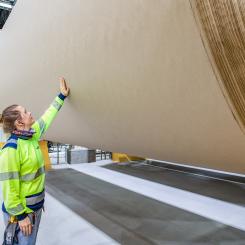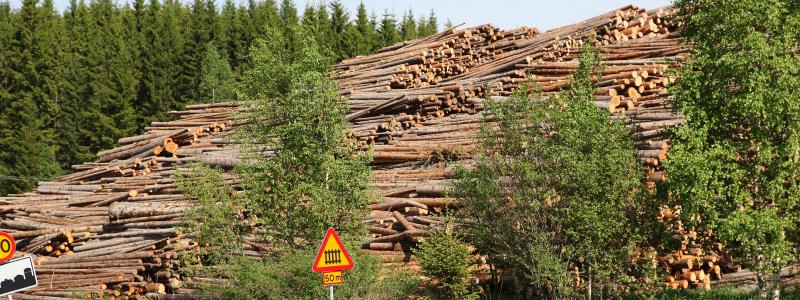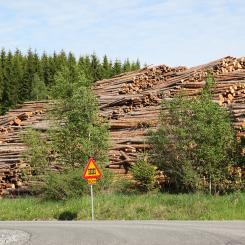John Rustad, opposition leader in British Columbia, recently stated that Canadian lumber is being "replaced" in the U.S. market. Mr. Rustad's statement at the Truck Loggers Association annual convention in Vancouver summarizes perfectly what has driven the Canadian built-for-export lumber industry to go on an all-out offensive in Washington and in the media against U.S. measures to protect U.S. lumber producers and workers from unfairly traded imports.
"Canada is frantically pushing the idea that the United States needs their unfairly traded softwood lumber by attacking President Trump's strong border measures," said Andrew Miller, Chairman and owner of Stimson Lumber Company, adding that "Canada tries to maintain U.S. market share at any cost by dumping their product into the U.S. market at the expense of U.S. workers and companies, and then protesting in apparent coordination with its Canada First allies in Washington when their unfair trade practices result in import measures at the border."
"Canadian lumber exporters are so desperate to evade the enforcement of U.S. trade laws that they are even pushing the outlandish scheme of using U.S. border tax revenues as a means to get the U.S. industry to drop its trade case against them, with the aim of relieving Canada from having to pay future duties while continuing to dump their excess lumber into the U.S. market," added Miller. "This notion is an absolute affront to the hard working men and women in the American forestry industry."
"The Canadian softwood lumber export industry needs to think more creatively about what to do with their excess lumber production, instead of relying on the U.S. market to dump their lumber on the American market to the detriment of U.S. forestry workers and communities," stated Zoltan van Heyningen, Executive Director of the U.S. Lumber Coalition.
In an effort to escape U.S. trade measures, Canada and their Canada First allies are unashamedly using the recent fire disasters in Los Angeles as the latest reason to promote the false notion that the United States needs unfairly traded Canadian lumber. For instance, British Columbia's new Forest Minister has noted that he will work with U.S. organizations such as the National Association of Home Builders (NAHB) against any border measures on lumber, while baselessly proclaiming that when Los Angeles is "looking at rebuilding they are going to be relying on BC wood to do be able to do that."
Erroneous, but persistent, messaging by Canada and NAHB regarding the impact of lumber border measures on housing costs leads to inaccurate and inflammatory headlines such as "Trump tariffs on Canadian lumber could be a 'nightmare' for California's fire recovery." Headlines like these serve to push an agenda that is not grounded in facts.
"It is frustrating seeing the use of inaccurate Canada First talking points being portrayed as facts in many news stories," stated Miller, adding that the "fact is that softwood lumber prices are currently low and have not kept pace with general inflation in recent years or the past two decades. And softwood lumber accounts for a very small share of the sales price of a newly constructed home."
"The cost of lumber only makes up about 1.3 percent of the total cost of an average new construction home, and even less in higher priced homes," explained van Heyningen, "so the idea that longstanding antidumping or countervailing duties or President Trump's tariffs on unfairly traded Canadian lumber imports would cause lumber prices to dramatically increase home prices is nonsensical."
Source: The U.S. Lumber Coalition























































